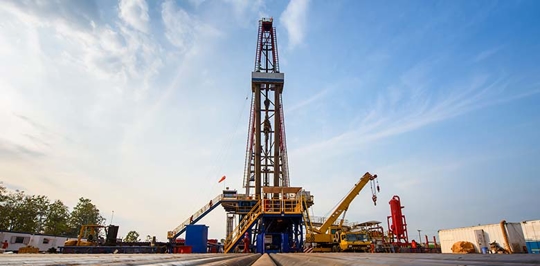There’s no shortage of jobs in an oilfield, and each labor-intensive role comes with its own risks. Whether you’re supervising the crew during the drilling process or engaging in various tasks around the oilfield, it’s imperative that you stay safe on the job. Here are some of the most dangerous jobs in an oilfield.
Roustabouts
Roustabouts—or roughnecks—aren’t responsible for handling any one thing but rather a multitude of tasks that vary in difficulty. This position is typically an oilfield worker’s first role in the industry, and no formal education is required.
Given the long shifts roustabouts must endure and their lack of experience, they are vulnerable to many on-the-job injuries.
Derrick Operators
A derrick is a steel tower near the drill hole that supports the drilling process. According to the Bureau of Labor Statistics, Texas employs the most derrick operators in the country (4,410), and Louisiana employs the second-highest number of derrick operators (750).
A derrick operator must rig derrick equipment and operate the pumps to circulate mud and fluid through the drill hole. Additionally, derrick operators are responsible for inspecting the derrick for any flaws and cleaning it as needed to maintain proper performance.
Operating heavy machinery near the oil well puts derrick operators at risk of falling, being crushed by equipment, and other devastating accidents.
Truck Drivers
One of the most dangerous jobs in the oil industry doesn’t even require you to be near the well, and that is an oilfield truck driver. According to the Occupational Health and Safety Administration, 4 out of every ten workers killed in the oil industry are killed due to a highway vehicle incident.
Truck drivers must transport materials to and from remote job sites, often traveling for long periods of time. The truck’s materials are often hazardous, and if an accident occurs, these materials could spill onto the highway and cause a fire.
If truck drivers aren’t carrying hazardous materials, they’re likely transporting heavy equipment that could come loose if it’s not properly strapped down.
Drillers
Drillers are responsible for supervising the entire crew on the rig. They must ensure all crew members are safe and follow OSHA guidelines to avoid accidents. While experience may be on the driller’s side, they are still vulnerable to work accidents.
They might be too occupied with monitoring others that they fail to consider their own safety. If equipment or systems malfunction, fires or explosions could occur, putting drillers at risk of fatal injuries.
Wellhead Pumpers
According to the Bureau of Labor Statistics, wellhead pumpers are responsible for operating power pumps and auxiliary equipment to produce the flow of oil from wells in the oilfield. In other words, they must ensure that oil is extracted from the well at a steady pace by monitoring fluid levels and pressure. If a blowout accident occurs, and oil is released uncontrollably, wellhead pumpers could be at risk for fatal injuries.
Additionally, a blowout could quickly result in a fire or explosion, which puts everyone in the surrounding area in danger. Like derrick operators, Texas employs the most wellhead pumpers in the country (9,940). North Dakota employs the second-most (1,200).
Injured on an Oilfield? Call Kemmy Law Firm
Although oilfield jobs come with some level of inherent danger, your work zone should be free of hazards. Defective equipment, cluttered work zones, or other forms of negligence might have contributed to your accident.
The oilfield accident lawyers at Kemmy Law Firm will personally investigate your case to determine who’s liable for your injuries. Contact us today at 844-334–4388 for a free consultation.
Kemmy Law Firm serves clients across Texas and New Mexico:
Oilfield Accident Attorneys in Odessa, Texas
101 N Jackson Ave
Odessa, Texas 79761
Oilfield Accident Attorneys in Hobbs, New Mexico
1601 N. Turner, Suite 417
Hobbs, NM 88240
The post What Are the Most Dangerous Jobs on an Oilfield? appeared first on Kemmy Law Firm.






